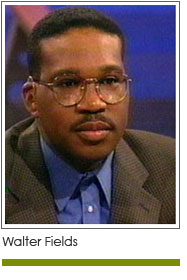 Disagreement can be a healthy exercise if it is done in a way that stimulates thinking and provokes individuals to reconsider their perspectives in light of hearing alternative arguments. When varying points of view are debated passionately, and opposing sides are forced to listen, it can enlarge public understanding of complex issues. The distinguishing feature of healthy debate is that it is done with the intent to advance the public good and is absent of malicious intent or personal attacks. Historically, one of the fierce debates within the African-American community pitted scholar W.E.B. DuBois against industrialist Booker T. Washington; a confrontation between titans that was often lacking decorum but was centered on differences in opinion on tactics for racial advancement that persist today. While both men, brilliant in their own right, sometimes let personal animosity infiltrate their very public debate, the intensity of their rhetoric was appropriate given the times and the precarious nature of Black existence in the 19th and early 20th centuries.
Disagreement can be a healthy exercise if it is done in a way that stimulates thinking and provokes individuals to reconsider their perspectives in light of hearing alternative arguments. When varying points of view are debated passionately, and opposing sides are forced to listen, it can enlarge public understanding of complex issues. The distinguishing feature of healthy debate is that it is done with the intent to advance the public good and is absent of malicious intent or personal attacks. Historically, one of the fierce debates within the African-American community pitted scholar W.E.B. DuBois against industrialist Booker T. Washington; a confrontation between titans that was often lacking decorum but was centered on differences in opinion on tactics for racial advancement that persist today. While both men, brilliant in their own right, sometimes let personal animosity infiltrate their very public debate, the intensity of their rhetoric was appropriate given the times and the precarious nature of Black existence in the 19th and early 20th centuries.
In recent weeks, there has been a running debate, or perhaps squabble is more appropriate, between modern day African-Americans who occupy leadership positions or possess celebrity status. Civil rights leader Rev. Al Sharpton and scholar Dr. Cornel West, and radio host Tom Joyner and television personality Tavis Smiley are engaged in conflict over the degree to which or not President Obama should be held accountable for the increasingly dire state of African-Americans. At the heart of the disagreement is the issue of whether any criticism of a Black in leadership by another Black is appropriate (of course it is) and whether there is a cultural penalty (of course there is) when such critiques are raised. This is not new territory as evidenced by the DuBois-Washington grudge match and the internal debates within the leadership of Black organizations, particularly between younger activists and established leaders, during the civil rights movement. What is painful and disappointing about the current cycle of internal dissent is that it feels personal at a time when we desperately need our leadership class to create a new framework for progress.
There is too much at stake for personal attacks or “point scoring” based upon who can strike the best popular pose. Each of these men has standing within their own right, whether you are a “fan” or a supporter. Rev. Sharpton has inherited the civil rights mantle from Rev. Jesse Jackson, a surviving heir to the King legacy, Dr. West is an accomplished scholar who has made his mark in academia, Tom Joyner is a radio pioneer who has used his celebrity to be a champion for education and Black colleges, and Tavis Smiley, is a self-made, media entrepreneur who is recognized for his diversity of interests. Their very public debates, Sharpton v. West, Joyner v. Smiley, over the record of the Obama administration is legitimate but what concerns me is that they are lacking a purpose beyond settling the score in the 2012 election. Black leadership needs a more structured frame through which to articulate its varying points of view and engage the larger community in critical thinking about our future. Our leaders waste valuable time when MSNBC and CNN become our favored platforms to hash out legitimate differences, further detaching themselves from the masses of African-Americans and only truly serving the interests of a ratings driven, corporate media. What we need is the elevation of Black institutions as “safe spaces” to air our differences, reconcile points of view, and reach consensus on strategies to pursue to affect change.
We need to utilize the only organizations under our control – Black colleges, the Black press and Black churches – coupled with Black advocacy organizations to construct a network of “conversations” that take into account the points of view of recognized leaders, scholars, community activists and youth. If we then work across organizations, so that everyone who is so inclined is hearing the same thing and everyone has an opportunity to provide input, we can then construct a template that can be put up for public consideration. What is killing us right now is that a good deal of our intellectual capital – Black College scholars, community leaders, clergy, young adults – is sitting on the sidelines as observers as the grand theater of intra-racial conflict plays out in forums that have little interest in resolution of these issues or the advancement of our people.
Walter Fields is Executive Editor of NorthStarNews.com.


















